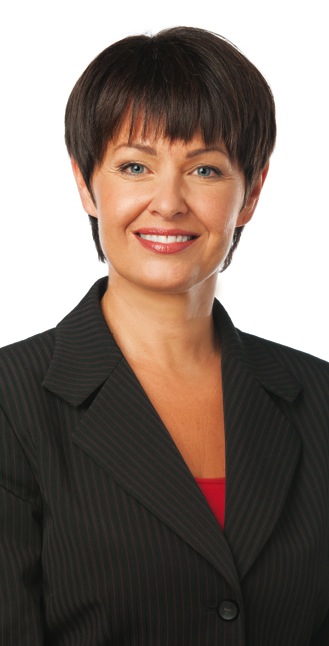Suddenly the race to be elected the next mayor of Calgary on Oct. 18 is getting interesting.
From Day 1 of the campaign, hard-right candidate Ric McIver has been identified as the front-runner. The Toronto Globe and Mail anointed him “Calgary’s Rob Ford” and all but declared him the winner in a thumb-sucker hagiography published on Sept. 24.
But unlike the citizens of Toronto, who are likely to be stuck with Ford as mayor whether they like it or not, Calgarians of all stripes except McIver’s particular line of Tory-blue now look as if they are considering handing “the toast of conservative Calgary” a big disappointment in a week. If they do, they’ll also be delivering a slap to the “who’s who of the Stephen Harper political machine” that has backed McIver’s candidacy.
Opposition to McIver is now coalescing around former television news anchor Barb Higgins, a more moderate conservative than the frontrunner and a person on whom voters who want some degree common sense at City Hall, McIver’s slogan notwithstanding, seem to have decided they can place their bets.
Best known as the former CTV news anchor in Calgary and as chair of the United Way campaign, Higgins self-identifies as a fiscal conservative with a heart, but is perceived by many as a red Tory. She has no formal affiliation with any political party.
In the past few days, Higgins has moved within striking distance of McIver’s big money, Harper-backed electoral machine.
A Return on Insight telephone survey of 501 Calgary residents taken between Oct. 2 and 4, shows Higgins closing to within three percentage points of McIver in general voter preferences. Other on-line polls show different results based on less reliable on-line methodology.
The ROI poll shows McIver with 31 per cent support, Higgins with 28 per cent, and Mount Royal University business teacher Naheed Nenshi 16 per cent. The poll shows the other 12 candidates fading into the dust — all with less than five per cent of the vote each.
This makes the race close enough that if sufficient numbers of voters who initially supported other candidates hold their noses and vote for Higgins, she can win.
This is bad news for a fine candidate like Bob Hawksworth, a former New Democrat MLA and longtime Calgary alderman of impeccably progressive views. But with his support now shrunken to an essentially irrelevant 3 per cent, those electors who want to stop McIver will have to desert him for Higgins. The same is true of supporters of the other also-rans.
This trend is also illustrated in the poll’s tabulation of decided voters, which shows McIver with 37 per cent, Higgins with 33 per cent, Neshi with 19 per cent, and all the others with 11 per cent of the electorate combined.
ROI founder Bruce Cameron said in a news releases that his company’s poll indicates that “the battle to become the next mayor of Calgary is closer than many observers had thought.”
There is always a huge knee-jerk Conservative vote in Calgary, as the city’s historic provincial and federal election results clearly illustrate.
But the city has also elected a series of mayors who are in effect mildly conservative liberals. Outgoing Mayor David Bronconnier, who was elected despite having run as a federal Liberal candidate, and his predecessor Al Duerr, frequently rumoured to a candidate for the leadership of the Alberta Liberals, are examples. Once elected, both were basically undefeatable.
Even Ralph Klein, another former broadcaster, acted like more of a liberal than a conservative back in the day when he presided over Calgary City Council.
No one should be surprised then, if on election day enough Calgarians move to Higgins’ camp to keep their city from falling utterly into the hands of the market fundamentalist right, which now dominates it at the federal level and likely will soon again in the provincial Legislature.
This post also appears on David Climenhaga’s blog, Alberta Diary.



